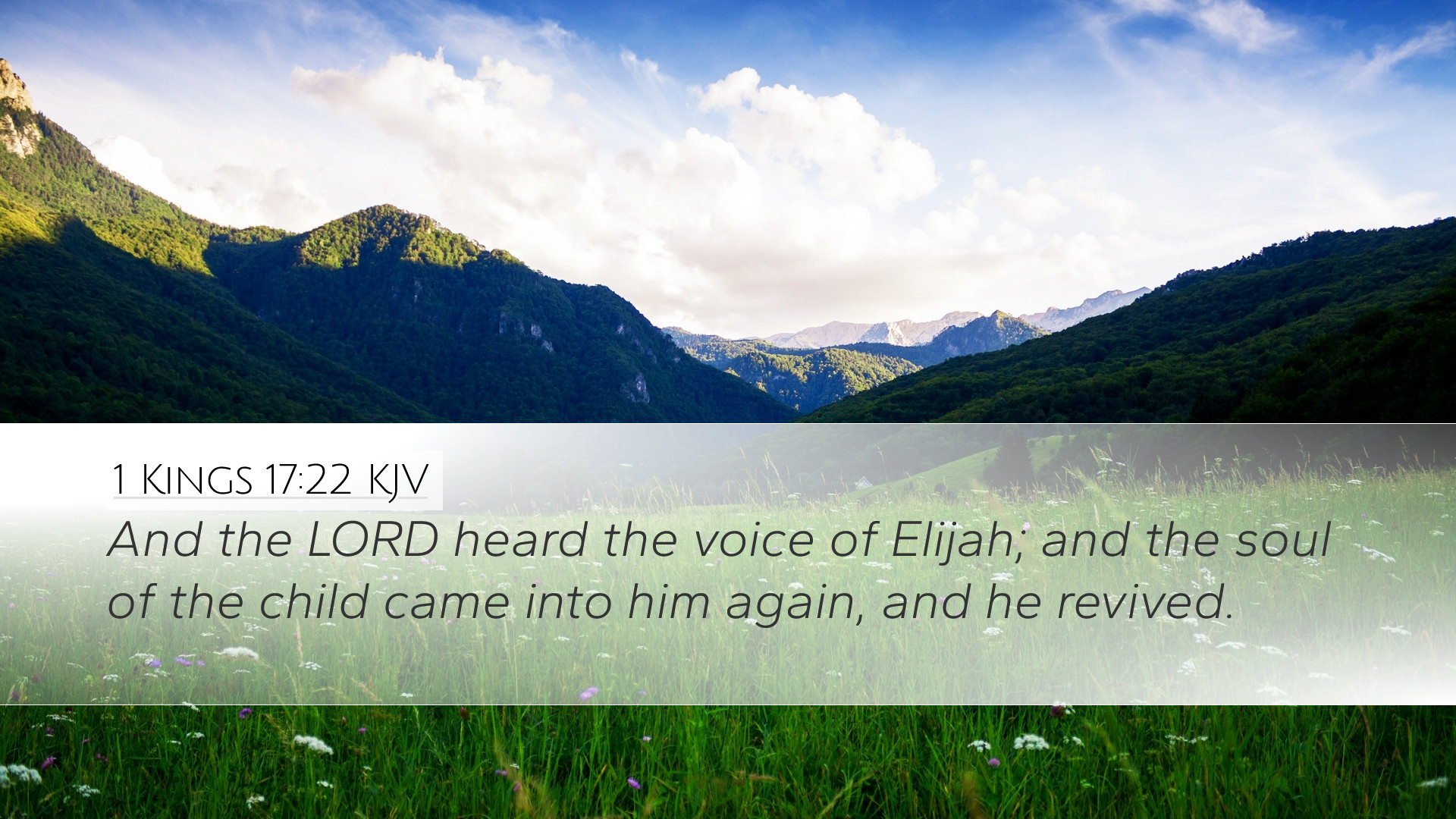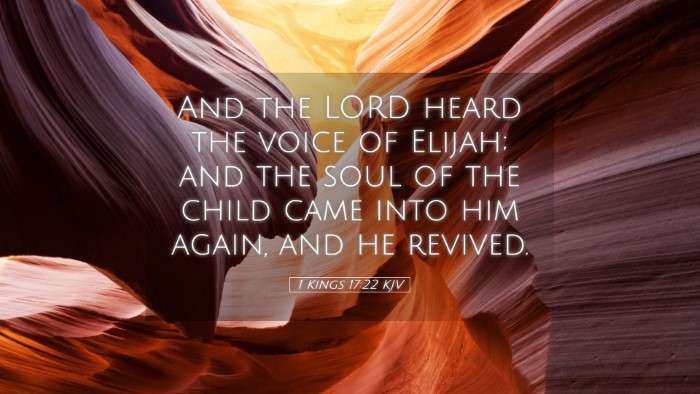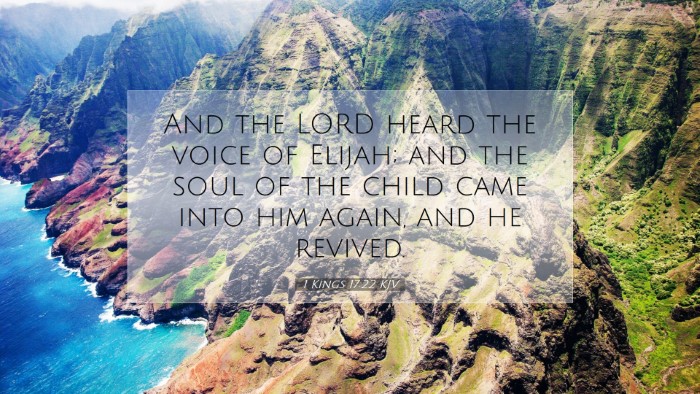Commentary on 1 Kings 17:22
Verse Context: 1 Kings 17:22 states, "The LORD heard the voice of Elijah; and the soul of the child came into him again, and he revived." This moment occurs during the ministry of Elijah, particularly during his time with the widow of Zarephath, where he performs a significant miracle that underscores God's authority over life and death.
Commentary Overview
This passage is rich with theological, historical, and practical implications. Drawing from the insights of acclaimed public domain commentators such as Matthew Henry, Albert Barnes, and Adam Clarke, we aim to explore the themes of divine intervention, faith, and the prophet's role in God's miraculous workings.
The Miracle of Resurrection
Matthew Henry emphasizes that here we witness a direct act of God in response to Elijah's fervent prayer. The revival of the widow's son is not merely an act of compassion but serves a greater purpose in revealing God's power.
- Faith in Action: Elijah's actions demonstrate profound faith; he takes the boy's lifeless body and prays to God, showcasing the belief that life can be restored through divine intervention.
- God's Listening Ear: It is poignant that "the LORD heard the voice of Elijah," highlighting the relational aspect of the divine. The passage reminds believers that God is attentive to prayer, particularly that of His faithful servants.
- Affirmation of Prophetic Authority: The revival of the child also serves to affirm Elijah's prophetic authority—the act illustrates that he is a true prophet of God, vested with divine power.
Theological Implications
Albert Barnes notes that this miracle serves as a powerful illustration of resurrection—a theme prevalent in the broader biblical narrative pointing to Christ's resurrection. The event foreshadows the ultimate victory over death, as later revealed in the New Testament.
- Anticipation of Redemption: The raising of the child can be seen as a prefiguring of Jesus's miracles and His resurrection. The restoration of the child symbolizes hope and the promise of eternal life.
- God’s Sovereignty: The miracle encapsulates God's sovereignty over creation, demonstrating that He has authority over life and death. Elijah’s prayer serves as a conduit for God's will, emphasizing that God remains the ultimate source of life.
The Role of Faith in Miracles
Adam Clarke focuses on the necessity of faith—both the faith of Elijah and the widow. The widow’s response to Elijah's initial pronouncement about her son reveals her previous doubts but ultimately leads to her recognition of God's power.
- Transformation Through Faith: Clarke underscores the transformative journey of the widow, who shifts from despair to a recognition of divine power. This moment marks the strengthening of her faith as she witnesses a miracle firsthand.
- Community Impact: The miraculous event not only revitalizes the child but also speaks to the larger community about God’s mercy and power, demonstrating how individual experiences of faith can ripple into broader societal transformations.
Life Applications for Faith Leaders
For pastors, students, and theologians, 1 Kings 17:22 is filled with practical applications:
- Prayer as a Tool for Transformation: This passage serves as a reminder that prayer is vital in calling upon God’s intervention in our circumstances. It encourages belief in God's capability to bring about change.
- Encouragement in Trials: Elijah's experience and the widow's eventual faith encourage believers to persist in their faith, even amid dire situations, trusting that God can work miracles.
- Never Underestimate the Power of God: The act of raising the child from the dead illustrates that God can intervene in the most desperate conditions. This is an invitation for faith leaders to teach their communities to expect God’s miraculous workings.
Conclusion
In summary, 1 Kings 17:22 serves not only as a historical account of Elijah's ministry but also as a profound teaching on faith, prayer, and divine providence. Through the insights of Matthew Henry, Albert Barnes, and Adam Clarke, we see a multifaceted view of this powerful scripture that inspires, educates, and challenges believers to remain steadfast in their faith. It points to the centrality of God’s power in the fabric of life, encouraging a deep reliance on His will and work in our lives.


